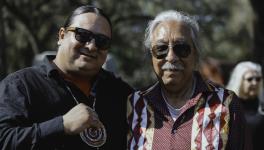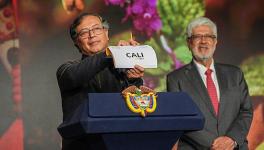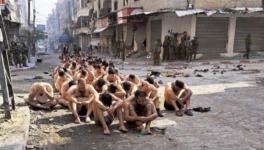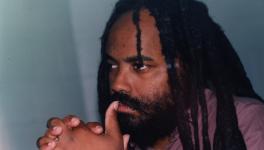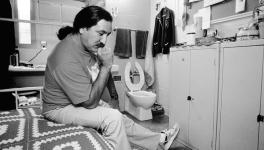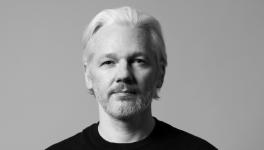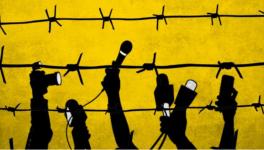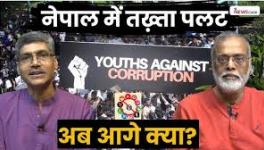What Has Happened in the Case of Julián Gil?
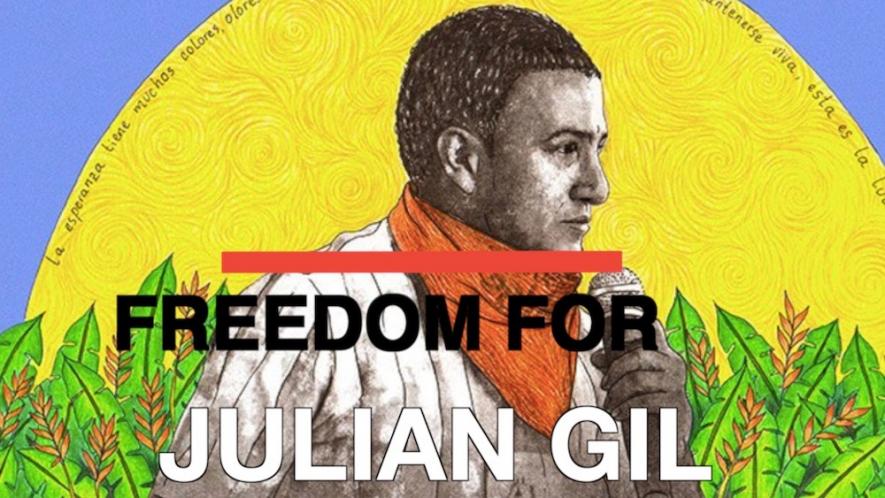
Julián Gil, the technical secretary of the Colombian social movement, Congreso de los Pueblos, has been unjustly imprisoned since June 6, 2018. His case is emblematic of the strategy of the Colombian state to attack and persecute those who try to fight for structural change and transformation in the country.
On September 5, a preparatory hearing was held for Julian’s case during which the defense and the prosecution presented their witnesses, evidence and expert reports. To learn more about what is happening in the case, and his resistance from within the prison, Peoples Dispatch, along with Colombia Informa, spoke to Angélica Orjuela who has assumed the responsibility of technical secretary of Congreso de los Pueblos.
Peoples Dispatch: What happened during Julián’s hearing on September 5?
Angélica Orjuela: During the preparatory hearing, both sides presented their respective evidence and the judge decided what would be admitted. All of the evidence presented by the prosecution was accepted but only part of the evidence of the defense was accepted.
PD: What is the strategy of the prosecution in the case of Julian?
AO: As has been pointed out and denounced since Julián’s arrest, the prosecution is using false testimonies in an effort to link him to actions of the insurgency. They do not accuse him of having been present in a specific action, but of having acted as an “intellectual author,” or participating in the planning and devising. This accusation is based solely on a testimony that has contradictions and has not been revealed in its entirety.
The prosecution seeks to relate social leaders with the insurgency. In fact, in one of Julian’s trials, the prosecutor claimed that it is the social leaders who plant bombs and are a danger to the community. The prosecutor knows that it will be very difficult to condemn someone without material evidence but they at least can keep Julián incarcerated for two years which constitutes a personal and collective punishment, and is part of the harsh persecution of people’s movements and their leaders.
PD: Could you talk about the irregularities in the legal process of Julián? Why have his hearings been delayed so much?
AO: The prosecution did not turn in the information to the defense in its totality. Their investigation had around 180 pages but the document they gave to the defense had only 24 pages. Since January, the defense has insisted that as stipulated by the Colombian constitution, they should have access to all the information that the prosecution has. The judge ruled in favor of the prosecution on this matter again last Thursday.
In the current judicial system, the defense should find the evidence on its own. However, in order to access this evidence, it needs authorisation from state entities. The prosecution opposed a request filed by the defense to collect a certain piece of evidence. Then there was a hearing about this issue and the judge also denied it. The defense had to file a separate legal petition in order for it to get access to a piece of evidence from a mobile telephone operator. The preparatory trials could not be held with a weak defense and with incomplete evidence because what is not mentioned in that hearing will not be accepted in the trial.
PD: How is Julian? What has he been doing since June 6?
AO: Julián has demostrated unbreakable strength and discipline. They have tried to break his revolutionary spirit in different ways, but they have failed. The first activity that Julián did was the creation of 2 community libraries in 2 blocks in the prison. From those libraries, some reading circles were created to encourage reading. Then, along with other prisoners, they began to make notebooks that were painted, decorated and put together by hand. These notebooks helped them raise money for collective activities and provided economic resources to those who did not have families nearby.
In December 2018, thanks to Julián’s organisation Quinua and the Claretians, there was a drive to collect hygiene products for the blocks during the Novenas. A concert was also held called “Concierto para delinquir” (a play on words, Concierto para delinquir is the name of crime in Colombia). In this concert, there was a collection of hygiene products and other products, as well as a collection of funds.
In addition to the organising in the prison, Julián has been dedicated to studying. He just graduated in a Specialisation from CLACSO (Latin American Council of Social Sciences) and he was able to do so thanks to the commitment of the professors and his efforts to complete the course in these adverse conditions.
PD: What are the next steps in his legal process?
AO: The next stage of the process is the trial, the date for which has not been confirmed yet.. The trial is when the prosecution will begin to present the evidence that was admitted in the preparatory hearing (the witnesses, testimonies and expert reports, etc.). Then, the defense will present their evidence that was accepted in the preparatory hearing.
Get the latest reports & analysis with people's perspective on Protests, movements & deep analytical videos, discussions of the current affairs in your Telegram app. Subscribe to NewsClick's Telegram channel & get Real-Time updates on stories, as they get published on our website.










